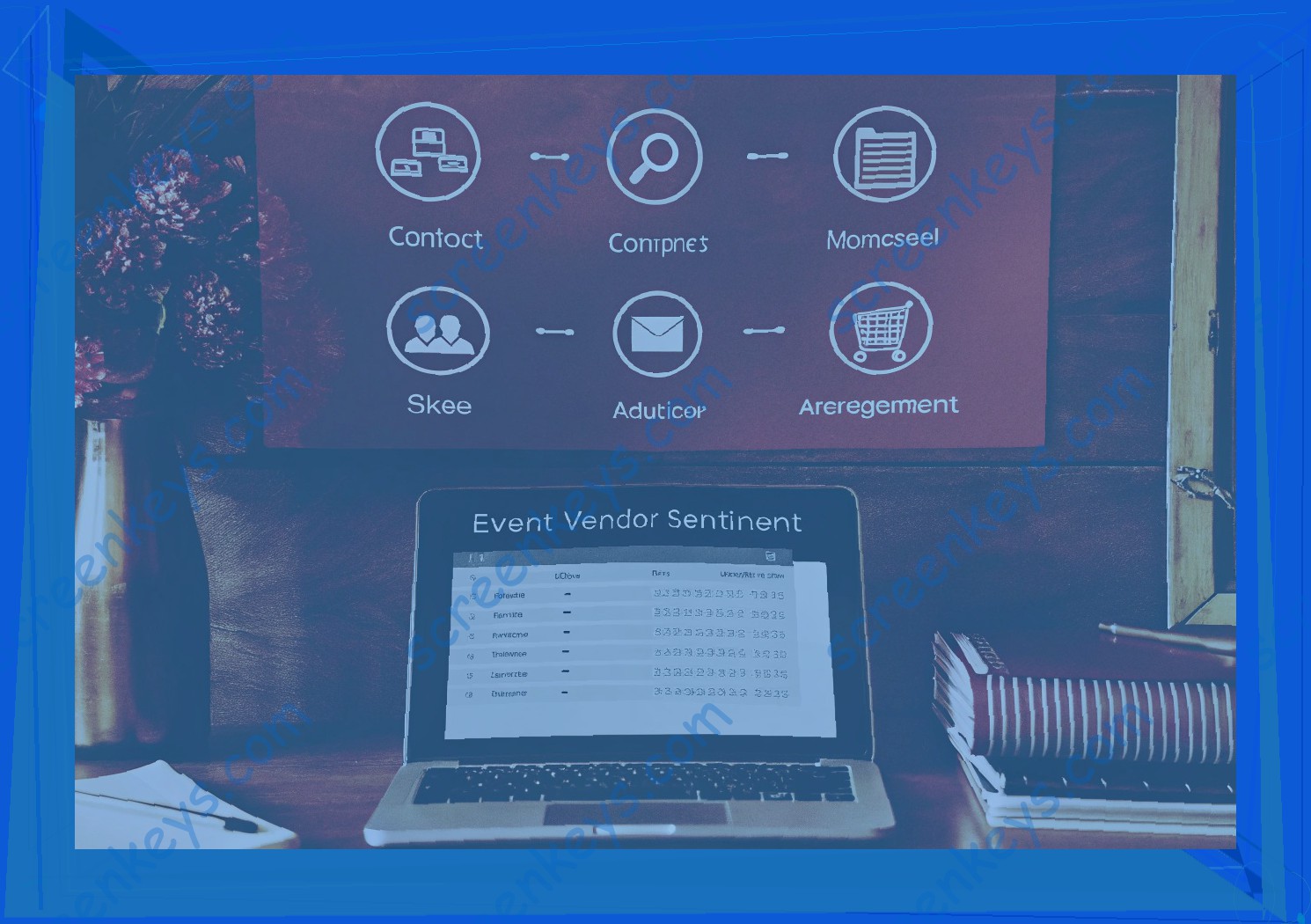Insights into Event Vendor Agreements
One aspect of effective event planning is having the right kind of written agreements with event vendors. These help to avoid misunderstandings and can create a better chance of having all of the things you need to support the event in place for the event itself.
Essentially, an event vendor agreement is exactly what it sounds like: an agreement between an event company and the vendor that defines the expectations and "rules" for how the relationship is going to be structured and operated. In its simplest form, having the agreement in place protects both parties from liability – like financial issues or unexpected cancellation fees.
But there is a lot more to it than just that. The agreement is how you define things like the date you are planning the business for , the compensation you’re expecting for services rendered, how you’re going to market the event, and how the attendance will be handled. Because each party is trying to turn a profit off the business, it benefits both sides to define these things as early as possible in the planning process. When issues do arise, the agreement gives you a document you can refer to that helps you understand how to resolve those issues.
If you’re an event planner, obviously you want to look for the best options for meeting your needs – that’s what an event vendor agreement allows you to do. But the terms that are agreed upon will also make sure you have a written guarantee that you’ll get what you’re looking for.
Fundamental Elements of a Vendor Agreement for Events
An essential part of planning for any successful event experience involves the preparation and negotiation of a written agreement or contract covering the terms of the relationship between an event planner and its vendors. Those terms typically include information such as which vendor will be providing certain services (e.g., catering, floral and audiovisual), the scope of those services, when those services are to be provided and at what cost. Any reputable vendor will want a written agreement with an event planner.
There are several key components to an event vendor agreement that an event planner should ensure are addressed to minimize the risks of a dispute during or after the event, which could result in extra costs, additional headaches or a negative guest experience for the event planner or its client. Those key components include: Scope of Services Scope of services provisions describe what services and deliverables must be provided by a vendor to fulfill its obligations to the event planner and/or its client. The scope of services and deliverables can range from the very general to the specific. For example, the scope of services in an audio/visual contract may simply state, "the vendor will provide audio/visual services and equipment as necessary to carry out the scope of the event planner’s objectives." In contrast to this general provision, some contracts will specifically list all of the equipment and services that are included. Scope of services provisions are important to both the event planner and the vendor. They allow the event planner and the vendor to clarify what the expectations are for the vendor and to set some parameters around costs. If there are services or equipment that may be needed on site, but that are not covered under the scope of services, the event planner and vendor can discuss whether the added services/equipment are critical and what added costs may be incurred if they are needed. Scope of services provisions also give the event planner and vendor a way to identify which needs will be fulfilled by others. For example, the event planner may be bringing in its own third-party lighting vendor to carry out the contract. Payment Events are expensive, and the budget is one of the key decisions points when planning an event. Accordingly, it is critical that an event planner and vendor reach an understanding as to the amount due for the services under the contract, as well as when payments will be made. This will likely be tied to the date of the event (e.g., 50% due 30 days prior; 100% due 7 days prior), though the parties can craft other arrangements as desired. Cancellation When preparing for an event, there are a number of requirements, including securing a venue, inviting and enticing guests and vendors. Unfortunately, those requirements can be costly and difficult to change after they are put in place. Thus, it is critical that event planners negotiate agreements with vendors with an eye toward cancellation. For example, events are often booked a year or more in advance for the following year. If an event planner has to cancel its event, it is unlikely that it will be able to fill the space for the original date. This means that it may still be responsible for paying the vendors fees associated with those services. Events often face a financial risk if the event must be cancelled – be it due to inclement weather (e.g., a golf outing on a rainy day), lack of attendance or even a natural disaster. Cancellation provisions can range from provisions that allow for only 50% of funds to be returned to provisions that allow for 100% to be returned. In the case of a force majeure situation, a vendor will likely have to refund 100% of the deposit. However, when the cancellation is not force majeure, the amount of the cancellation fee is up to negotiation and can vary widely. Cancellation provisions are critical to protecting an event planner in its efforts to recoup some of the costs of an event that must be cancelled. Limitation of Liability The parties should also discuss how they will limit their liability to each other in the event something goes wrong with services or if there is damage to a venue as a result of the event. Vendors will likely want to limit the amount of liability under the agreement to the fees received from the event planner. Event planners may want to negotiate for the ability to leave with the vendors’ insurance coverage if something goes wrong, or to be indemnified by the vendor when something goes wrong, in exchange for limiting or eliminating any liability under the contract.
Common Dilemmas in Vendor Agreements
For most clients, they have generally never wrestled with a vendor agreement and when it does come into play in the context of an event, it is usually one which relies on an "as-is" understanding or is a product of negotiation between legal counsel on the event venue and event production sides. However, regardless of how the agreement has been previously used within the industry, much like any contract in a commercial environment, the terms of such an agreement should be addressed and handled by counsel familiar with both the legal and industry practice (and industry custom) to understand how to best structure the agreement to protect all parties (regardless ultimately who is paying for services under the contract).
There are several issues that come up regardless of the industry, time, or type of agreement: (i) vague descriptions of services to be performed or goods to be provided; (ii) failure to address the assigned responsibilities of each party in the process/service; (iii) incomplete or unrealistic deadlines; (iv) termination rights and restrictions; (v) insurance requirements; (vi) indemnity and liability provisions; (vii) permission for the use of likenesses; and (viii) force majeure clauses, among others.
All of these areas within a vendor agreement typically have standard issued boilerplate language from vendor to vendor – however, it is not uncommon that any particular agreement may contain atypical or unique language either separately negotiated or believed to be standard by certain industry (or local) practices. Such unique or atypical language could include but is not limited to variables in the following topics: scope of work; time frames for performance; service or performance guarantees or remedies; product costs; suppliers; or exclusivity among others.
While a lot of this may be industry custom, a good rule of thumb, is to ensure that the event vendor agreement deals specifically with the issues above or if an issue not addressed is a concern, have a discussion with your attorney to determine the need and importance to address the issue directly.
Advice on Bargaining for Productive Vendor Agreements
As discussed in many of the other sections of this blog, the importance of successfully negotiating event vendor agreements with all of your event vendors cannot be understated. A well negotiated deal can save you thousands of dollars over the course of your entire event, and can help to ensure that your event is a success.
Knowledge is Key
The most important factor to keep in mind when negotiating any type of agreement is that knowledge is power. Understanding the strengths of your negotiating position and leverage points are critical in order for you to successfully negotiate an agreement that will save you money and help you maximize your budget. In negotiating an event vendor agreement there are three (3) key factors you should know before you start – this information will help get you in the right frame of mind so you can go into the negotiation with realistic expectations:
- The market value of the work product you are hiring the vendor to produce. Keep in mind that this is not based upon the price tag of the last contract you reviewed – it is based upon what the going rate is for that type of work in that specific geographic area for that period of time. This is why it is very important to have a thorough knowledge of the current state of that specific vendor’s particular industry.
- The needs of your event and the importance of the vendors to fulfilling those needs. Certain vendors are a must for certain events – a hotel is essential to housing the majority of the guests attending your event; an audio-visual provider who can provide seamless, high tech production capabilities is essential to a conference; and an event planner is essential to guiding you through the myriad of requirements which go into planning an event. Conversely there are other vendors which although are important pieces to the puzzle, are not as pivotal to your event being a success. For example, if you have a need for floral décor, you generally can find more than one good florist in a certain location to choose from.
- The minimum needs of the vendor – all businesses have a bottom-line which they need to meet to make a profit. Important to inquire about their minimum requirements and if the contract amount falls below that number, likely the vendor would prefer to not do the business, thus you risk losing that vendor altogether.
Communicate Effectively
Once you have a good view of the landscape, you can start to negotiate the terms of the agreement. In negotiations, some of the most effective ways to reach a good outcome for both parties while still maintaining a strong working relationship moving forward are:
- Be prepared for the negotiation and know whom you are negotiating with. Do not walk into a negotiation fully expecting to just sign the three page contract that was sent over to you without fully reading it first. Take the time to understand the parameters of the deal being offered by the vendor and be aware of what is market value for that type of work in your area – this shows the vendor you are serious about negotiating, and allows you to put your best foot forward in the negotiation process.
- Listen to the needs of the vendor – just like you will only do business with a vendor if you believe it will be beneficial to your event, the same goes for them. They will only do business with you if they believe that it will benefit their bottom-line to do business with you.
- Create a contract that you both see benefits for – most vendors make at least 10% profit on their product. If you create a contract where you are asking for a discount of more than 10%, it is likely that the vendor will not be able to close that deal. However, if you draft a contract that includes more value items than discount items, you can create a win-win proposition for both you and the vendor where they both feel satisfied by the conclusion of the deal.
The Legal Side of Vendor Agreements
While the sole determinant in drafting a successful vendor agreement should not be the consideration for the ability to enforce its terms and conditions in a court of law, a vendor agreement should be understood to be a legal document and therefore should be treated accordingly.
Consequently, a vendor agreement should be reviewed by a lawyer not only to ensure that it is properly written and can be enforced given the relevant facts at issue in an event. Among the important legal considerations are the scope and ownership (intellectual property) of content used by the vendor in providing the services , local laws and regulations with which a vendor or its employees must comply, conditions regarding the protection of each party’s confidential information, and limits on liability for damages that a party suffers as part of an event (particularly if the investor is a nonprofit organization). Also, legal requirements for the services to be provided (i.e., licenses) and payment of taxes must be followed.
Making Agreements Pertinent to the Occasion
When it comes to creating event vendor agreements, the type of event you’re planning can significantly affect what needs to be included. For example, planning a wedding will often look different than planning a corporate event or a festival. The good news is that there are clauses of your vendor agreements that will be the same for most events. What’s important is taking note of the unique aspects of each event, and incorporating those into the vendor agreement. For a wedding, for example, you may want to include language that limits the amount of wedding party members allowed during set up or during ceremony service—the last thing you want when there is a short time frame to turn around the room from the ceremony to the reception is to have the room flooded by a host of pre-game picture takers! A food vendor may need to put a clause in their agreement regarding the type of service (buffet or plated) offered, how many wait staff they will require, and what hour the last plated meal will be served. A corporate event may require additional insurance coverage depending on the location and the length of time. A large outdoor festival may require extensive security provisions within the agreement.
Maintaining Ethical Vendor Associations
As past experience has shown, the signing of an event vendor agreement doesn’t guarantee that everything will go as planned. This section will discuss best practices for maintaining and ensuring a healthy relationship with your event vendors after an agreement is signed. Maintaining a healthy relationship with your event vendors up until and after the date of an event is critical to the success of any event. Devise a plan ahead of time in order to best communicate with each vendor after an agreement is signed and before the event . Establish the main points of contact and share any information that could help the vendor accomplish its goals in assisting your event. If there are issues that arise, address them as soon as possible to instill confidence in your vendors and maintain a healthy relationship with them. Planned routine check-ins with your main point of contact for a given vendor can also help identify any possible issues or concerns that should be addressed before the event.




